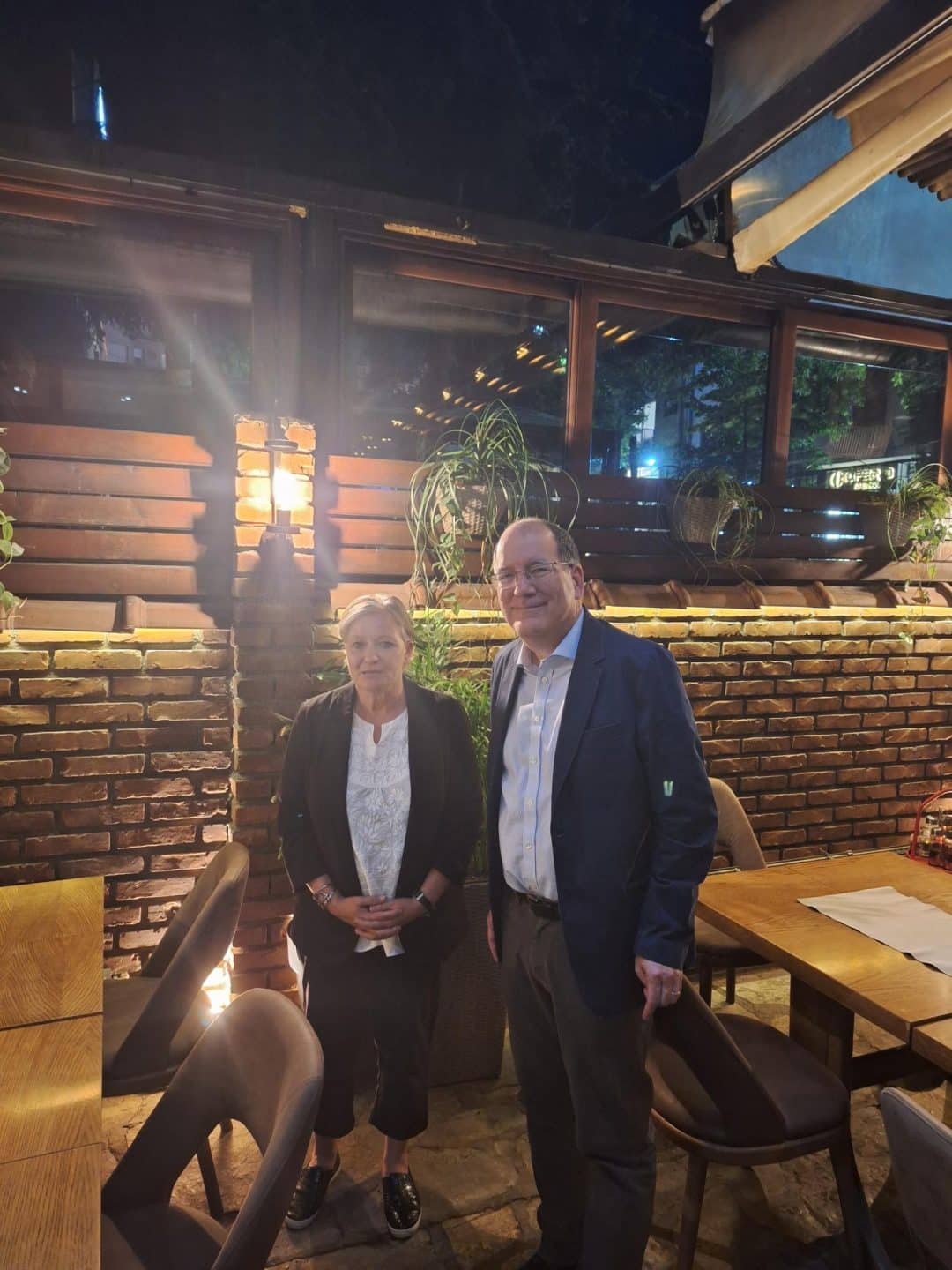TAP Expert's Perspectives on Mining
The Technical Assistance Partnership (TAP) initiative implemented by Alinea International and funded by Global Affairs Canada is working in collaboration with resource management policy and regulatory leader Deborah Archibald and Kosovo’s Ministry of Economy to support the mining sector by strengthening the Government’s capacity to assess, design, develop and deliver policies, programs, and services that support a more robust, inclusive, and sustainable mining sector that benefits all Kosovans including women, the vulnerable and the poor.
Deborah, a seasoned Canadian expert with boots on the ground in Kosovo, writes this insightful blog. Through her first-hand experiences, she sheds light on her growing understanding of the project and the country’s culture, providing unique perspectives and valuable insights.
My Perspectives on Mining Development in Kosovo
By Deborah Archibald
I have been honoured to be engaged by Alinea International to work with the Ministry of the Economy of the Republic of Kosovo to provide strategic advice to the government to re-vitalize their mining sector to diversify their economy and create economic benefits for their citizens. Economic benefits could include employment in the sector, providing goods and services to the sector and creating value-added opportunities such as the processing and refining of Kosovo’s minerals and metals into a close to final product.
First, a bit of context. Kosovo, or Kosova as residents refer to it, is a republic in southeastern Europe, lies at the heart of the Balkans and is surrounded by Serbia to the north and east, North Macedonia to the southeast, Albania to the southwest, and Montenegro to the west. It was part of the former Yugoslavia, marked by tensions between Albanian and Serbian communities. These tensions escalated into the Kosovo War of 1998 and 1999, leading to the withdrawal of the Yugoslav army and the establishment of the United Nations Interim Administration Mission in Kosovo (UNMIK). While Albanian is the official language, Serbian still holds prominence in certain regions of Kosovo.
As a policy nerd, the work, funded by Global Affairs Canada’s TAP-EDM program, is incredibly interesting. Phase 1 of the work was to develop a 360 Review (or a Needs Assessment). The 360 Review consisted of two lines of primary data gathering: (i) desktop work, examining the specific pieces of legislation that make up the overall framework that manages mineral development (exploration and mine operations in Kosovo) and the institutions that are mandated to implement the legislation; (ii) interviews of relevant stakeholders ensuring that the full range of stakeholders were interviewed. In June 2023, I interviewed state-owned and private mining companies, mineral exploration firms, non-governmental organizations, and government ministries. The focus was on gender equity and inclusion in the Ministry and mineral development, aligning with Canada’s Feminist International Assistance Policy.
Phase 2 of the work, based on the findings of Phase 1, will be to implement several projects that could support the Government of Kosovo in its policy objective of stimulating the mineral exploration and mine development industry. Phase 2 will require that I travel back to Kosovo to work with the Government to implement these projects.
Reviewing the legislation currently in force in Kosovo, I find it robust and aligned with international best practices. It was enacted in 2012, just four years after Kosovo’s establishment as a country. Notably, it establishes an independent regulator and encourages public engagement in decision-making. However, the main challenge lies in effectively implementing this legislation. The political parties are transitioning from a movement to governing a country, while the government system shifts from a socialist state to a liberal democracy. It’s crucial to remember that Kosovo has existed as a country for only 15 years. Many citizens are still adjusting from a culture of state dependency to embracing independent thinking and action.
Beyond the project, my time in Kosovo was also a learning experience for me personally and professionally. I had the opportunity to experience and adapt to some differences in the work culture. Back home, I was accustomed to a workplace with “open-door policies” even at the Executive Management level, where face-to-face communication was encouraged, and my office door was always open. However, in Kosovo, colleagues in offices primarily communicated through WhatsApp instead of the traditional face-to-face interactions I was used to. It was an adjustment, but I learned to use WhatsApp to communicate effectively with my liaison and colleagues. When I inquired about this practice, my liaison explained that it had been the norm in their work culture for quite some time. Embracing this difference allowed me to better integrate and collaborate with my team in Kosovo.
I look forward to my next trip to Kosovo and my continued work with the Government of Kosovo.
Background Information:
- Technical support for the mining sector for Kosovo’s National Government
- Deborah Archibald, resource management policy and regulatory leader

